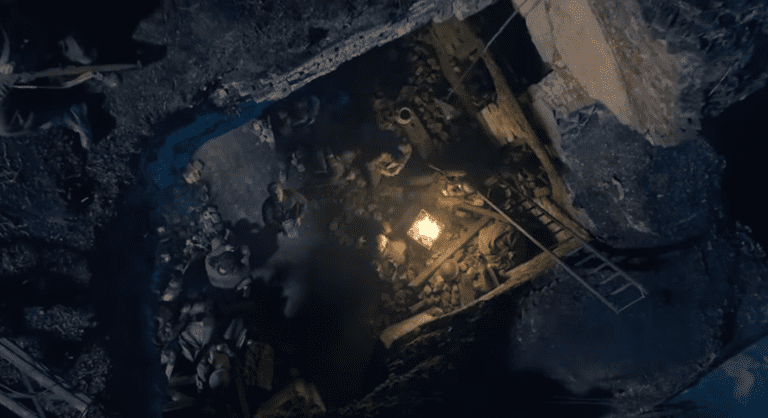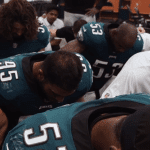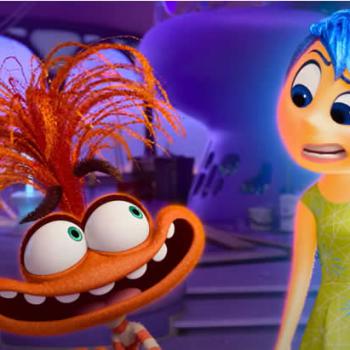
Darkest Hour is, again, not an explicitly religious movie. But when you watch it, you’ll notice how Director Joe Wright shows beleaguered Britain and France through what might be called a God’s eye view: The camera takes us high above the ground, looking at scenes of destruction as if they were a child’s diorama, exploding with light and heat.
Sometimes, it’s technically a Churchill’s eye view, as the prime minister peers down from a plane flying high above. With the camera angle, the movie stresses that Churchill is playing, essentially, a bloody game of chess, and he has the power to move or sacrifice pieces at his whim. He is, in a sense, playing God, and we see a repetition of that God’s eye view when Churchill makes the decision to sacrifice thousands of British lives (in the hopes of saving hundreds of thousands more). We see the blazing city and its doomed men from high above, their fates seemingly sealed from places remote.
So I found it really interesting when, toward the end of the movie, the God’s eye camera captures Churchill himself—a tiny figure standing on a tiny building below. It’s not just Churchill who watches events from above. Churchill, too, is being watched: History watches. God watches. And by extension, Churchill will be judged.
And so, when it seems as though all logic and prudence and instinct for self-preservation would push Churchill to capitulate, he instead stands firm and stares down his mighty foe, steel-eyed and defiant.
“We shall defend our island, whatever the cost may be,” he says. “We shall fight on the beaches, we shall fight on the landing-grounds, we shall fight in the fields and in the streets, we shall fight in the hills. We shall never surrender!”
Churchill offered another speech a few weeks before—one not fully quoted in Darkest Hour. But I think the stuff not used in the movie emphasizes Churchill’s understanding of this curious crossroads in history. In it—his first address to Britain after becoming prime minister—he pulls a quote from the Hebrew book of 1 Maccabees and emphasizes the Holy Eye upon him, and upon the country itself:
“Arm yourselves, and be ye men of valour, and be in readiness for the conflict; for it is better for us to perish in battle than to look upon the outrage of our nation and our altar. As the will of God is in Heaven, even so let it be.”













